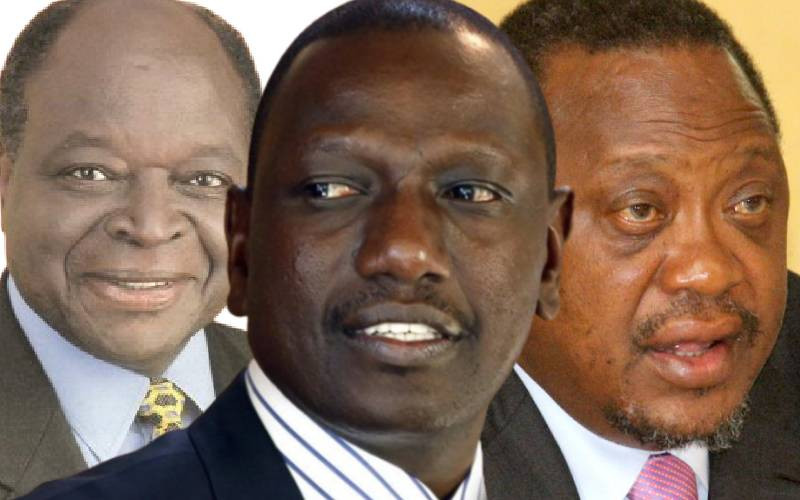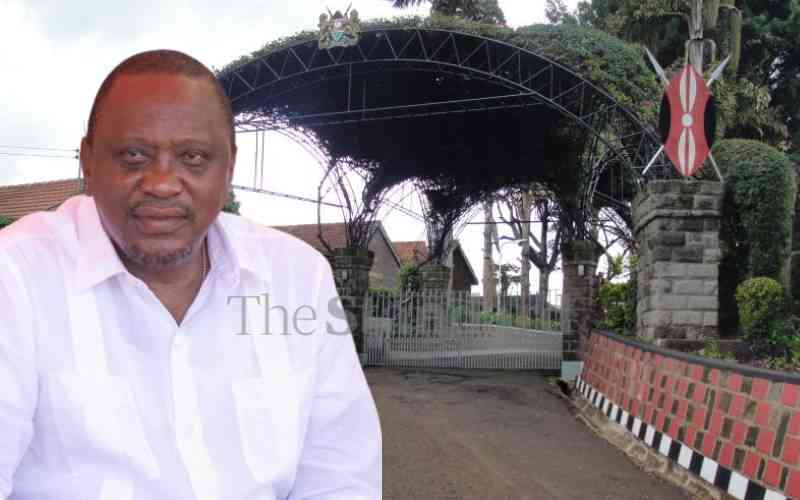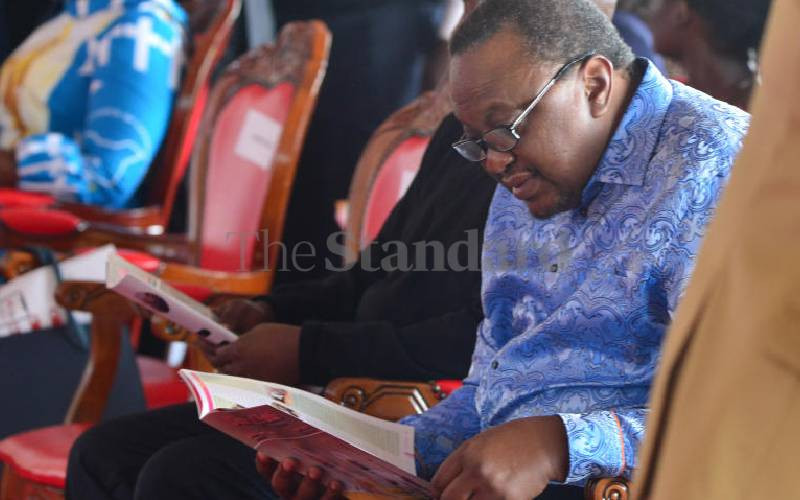President Uhuru Kenyatta will possibly know of the wonders of Mansa Musa Keita the Great (1280 – 1337). This man was the tenth Mansa, or “the King of Kings” of the Kingdom of Mali in West Africa, in the 14th century. Storytellers, like the Moroccan traveller Ibn Batuta (1304 – 1369), have told us about Mansa fabled pilgrimage to Mecca, in 1324, for example.
It is said that the “King of Kings” made the holy visit to Mecca via Egypt and Medina, in the company of 60,000 men, who included 12,000 slaves. Each slave carried no less than four pounds of gold.
There were 80 camels, each with up to 300 pounds of gold. It is said that the value of gold dropped in the cities that Mansa Musa visited, due to the superabundance of the gem that he brought with him. Ibn Batuta said the value of gold in Cairo remained depressed for 10 years.
Such was how African royalty travelled and still travels to other lands. When the story was told this week that President Kenyatta was travelling to Nigeria with a procession of 84 people, each carrying a few thousand dollars, I did not think this was an issue to make a meal out of.
What is puzzling, however, is that after a furore on social media about the 84, State House cancelled the President’s trip. Instead, they dispatched his deputy to represent him at an official function in the Land of the Eating Chiefs. This was not good at all. As a good citizen, I take it that State House considers carefully everything about the activities of the Head of State.
It is wrong for the Head of State’s official trip to be cancelled on the basis that citizens seem to have found out about the entourage and grumbled about it. It paints the picture of an individual about to break into your house and ran away just because you spotted him before he could strike. Should we praise him for not breaking in? He would do better to proceed to the house anyway.
He should politely knock at the door, the way a good visitor would, salute you and inquire whether Makokha lives here. You may then tell him that he is at the wrong address. To run away does not help at all. The owner’s mind registers that he intended to break in. The man is not to be trusted. Like Mansa Musa the Great, President Kenyatta should have gone on with the trip, highlighting the merits. What is the President’s 84, in 2015 compared to Mansa Musa’s 60,000 in 1324?
The goofing trend from State House is disturbing. Ahead of the latest coup de volant was the precarious mid-air about-turn in Ethiopian airspace. Presidential matters cannot be dealt with in such knee-jerk fashion. There is need for detail, method, finesse and decorum in the management of presidential affairs and, indeed, matters of State generally. Is there some loose cannonball meddling with presidential programmes in State House?
This week’s fiasco about Yumbis should never have happened.
Hopefully it will not happen again. On Tuesday morning, news began breaking that dozens of police officers had died at the hands of the dreaded Al Shabaab in Yumbis, Garissa. In no time, State House was mourning “with the bereaved families.” Just as quickly, the position was recanted. Nobody had died, it seemed. State House turned the blame on “the media for misleading State House and the public with unverified information.”
Can this really fly? Who should pick up information from the other, between the media and State House? You got the impression that there exist numerous messages of condolences in State House, signed and good to go. They are only waiting for a terrorist strike and the message will roll out. We have a problem. Who is in charge of presidential communications in State House? Is there a policy on the sourcing, sieving, verifying, owning and dispatching of public information from the centre of power? What is the role of the presidential spokesperson in the numerous slip-ups and embarrassing memoranda and false starts, bearing the presidential imprint?
Communications people who have worked closely with people in political power will tell you about bands of men and women of straw who know nothing about public communications but are quick to usurp the communication function. Indeed, sometimes the boss is himself the problem. You will often bump into him on TV, saying outrageous things that you had no idea at all that he intended to say. You are suddenly thrown into the role of clearing up the mess and spinning into sense the insensible.
The spokesperson’s dilemma is heightened by the fact that the straw characters around the boss think they are the power behind the throne. Thus, in State House, you may find blustery caricatures ringed around the big man. Like Rasputin the mad monk, they bully everybody inside and outside State House. They churn out a lot of compost for others to clear away.
Ultimately, however, the big man must take the flak.
A significant number of these characters are cannon fodder, pure gunpowder. They were useful when the bayonet reigned, during the presidential campaign.
Stay informed. Subscribe to our newsletter
Their expiry date was election date. They should never have been carried to State House; not even as paid-for excess baggage. They are flat batteries that will probably never be recharged.
The done thing with these characters is to parachute them away to some safe ground before they can do the kind of damage they are now doing. Exercising power was never about chumminess. It is always about realpolitik. After a successful election, the sovereign must disengage from this cannon fodder. He can selectively reassemble it at the next election, depending on individual value.
He will even discover that some of this gunpowder has expired permanently. There will always be some new one. But if he elects to keep expired battleground material in State House, he must prepare to stumble from one embarrassment to the other, as seems to be the order of things in Kenya’s Big House.
It is a matter of common sense, really. When the grand palatial edifice is under construction, you use hand labourers and sundry hirelings, under the guidance of a few professionals. When the work is done, the labourers and hirelings go away.
Even as the palace is officially opened, they have no access to it. They stand far away, among the crowds, telling people how they were the ones who did this task or the other, during the construction.
If you carry this baggage around, however, it will countermand even your Cabinet and other senior State officials.
President Kenyatta has two choices, to parachute these fellows from the centre of power, or to live in an ever-expanding field of embarrassment.
 The Standard Group Plc is a
multi-media organization with investments in media platforms spanning newspaper
print operations, television, radio broadcasting, digital and online services. The
Standard Group is recognized as a leading multi-media house in Kenya with a key
influence in matters of national and international interest.
The Standard Group Plc is a
multi-media organization with investments in media platforms spanning newspaper
print operations, television, radio broadcasting, digital and online services. The
Standard Group is recognized as a leading multi-media house in Kenya with a key
influence in matters of national and international interest.
 The Standard Group Plc is a
multi-media organization with investments in media platforms spanning newspaper
print operations, television, radio broadcasting, digital and online services. The
Standard Group is recognized as a leading multi-media house in Kenya with a key
influence in matters of national and international interest.
The Standard Group Plc is a
multi-media organization with investments in media platforms spanning newspaper
print operations, television, radio broadcasting, digital and online services. The
Standard Group is recognized as a leading multi-media house in Kenya with a key
influence in matters of national and international interest.









